London
The RSB branch structure is changing in 2025. Our members in London have run a range of great local events. Read about our past events and find out about upcoming events near you on our events pages.
Our members
Visit the branch demographics to see the numbers and locations of our members (Dated January 2023).
Current committee
Chair: Dr Brenda Williams MRSB
Secretary: Professor Patrizia Ferretti FRSB
Treasurer: Dr Alice Baynes MRSB
Members: Ms Elisha Pickett MRSB, Dr Danae Dodge (Co-opted), Miss Dagmara Krzysztofiak AMRSB (Co-opted)
Contact details
Please get in touch by emailing us at london@rsb.org.uk
Who we are
The Royal Society of Biology (RSB) London branch was reformed in April 2018 and is currently run by Dr Brenda Williams (co-opted Chair), Professor Patrizia Ferretti (Secretary) and Dr Alive Baynes (Treasurer).
The committee currently encompasses members from a variety of professional backgrounds, including field biology, molecular sciences, genetics and biology education. The group brings together teachers, researchers and industry members from various biology specialty areas to develop a branch that is dedicated to promoting biology in London. The expertise and enthusiasm that our committee members bring has been imperative to the development and success of our branch as a whole. Planning events and engagements are now becoming easier and more effective than ever.
Meet the committee
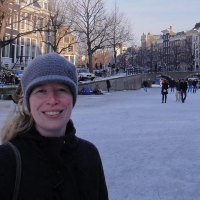 Dr Alice Baynes MRSB
Dr Alice Baynes MRSB
Alice is a senior lecturer in environmental sciences at Brunel University London. With her first degree in Marine Biology and subsequent research on freshwater fish and snails, her main interests lie in aquatic biology. Alice's research focus is on the effects of environmental chemicals (pollution) on wildlife. Her work specifically looks at how chemicals can impact an animals development, growth and reproduction - by disrupting its endocrine (or hormonal) systems.
At Brunel, Alice leads the "Ecosystem Stressors" module taken by students from BSc life sciences, BSc environmental sciences, and BASc global challenges (planetary health) degrees and leads the "Environmental Change and the Anthropocene" synoptic assessments. Outside of work, Alice is a keen wildlife gardener, wildlife watcher and fossil collector.
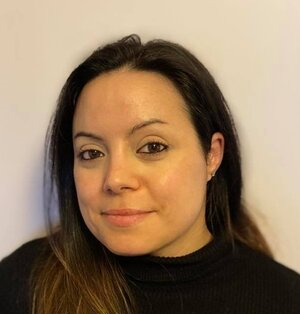 Dr Danae Dodge MRSB
Dr Danae Dodge MRSB
Danae is an academic turned science communicator. During and after her PhD in Ancient DNA, she volunteered for many charities e.g. Science Grrl, British Science Association, and Sense about Science (where she is an Ask for Evidence ambassador).
She is the communications officer for the Ecological Continuity Trust (ECT); a UK charity that preserves long-term ecological experiements (experiments that have been running for 6+ years, or have funding for 6+ years) for policymaking, sustainability land-use and education.
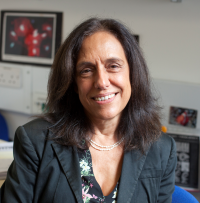 Professor Patrizia Ferretti FRSB
Professor Patrizia Ferretti FRSB
Patrizia is professor of regenerative biology at UCL (University College London). She has a long-standing interest in mechanisms governing tissue regeneration within the context of normal and abnormal development. Her current research focuses on the use of human stem cells for elucidating disease mechanisms and developing cell-based therapies to repair diseased/ injured tissues. She is also very interested in ethical issues concerning source and use of human stem cells.
In addition to research, she is very committed to education as a Co-director of a MSc in "Cell and Gene Therapy", and of the "Stem Cells and Tissue Repair" and "Laboratory Projects" modules, and in supporting students from disadvantaged backgrounds through schemes such as in2science and as a STEM ambassador.
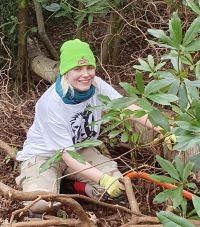 Dagmara Krzysztofiak
Dagmara Krzysztofiak
Dagmara is a graduate teaching assistant in biomolecular sciences at Kingston University.
Her work focuses on equipping students with practical skills and an entrepreneurial mindset. For Dagmara, being a biologist goes beyond studying biology. In her spare time she volunteers with Kingston University Biodiversity Action Group on a variety of conservation and monitoring projects.
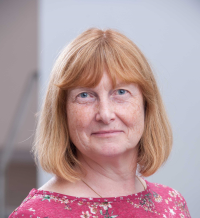 Dr Brenda Williams MRSB
Dr Brenda Williams MRSB
Brenda is a reader in neuroscience education at the Institute of Psychiatry, Psychology and Neuroscience (IoPPN), King's College London (KCL). Her research background was in stem-cell biology and neuron-glial interactions in health and disease, but her current focus is education. She works with colleagues across the IoPPN to enhance the students experience through evaluating and improving assessment and feedback practices, promoting skills development and innovative neuroscience education.
Being a firm believer in diversity and inclusion, she led the development of two successful distance learning MSc programmes; Psychology and Neuroscience of Mental Health, and Applied Neuroscience, for which she is a programme lead.
Our events
Since the reformation of the branch in 2018, we have organised a range of events including guided tours if the Bethlam Museum of the Mind, the Wellcome Trust exhibitions, the Royal Veterinary College Museum and The London Wetlands Trust. During the COVID-19 Pandemic, we continued to offer online events, including talks by the London Wildlife Trust and Royal Parks. We also organised a number of successful online quiz events.
Face-to-face events returned last year and have included a guided tour of the Temperate House at Kew Gardens and the Camley Street Natural Park in Camden. We are currently planning visits to a crop research centre and an evening bat walk.
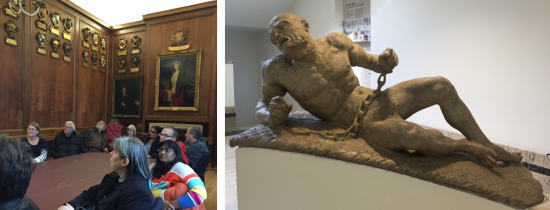
Outreach and Engagement
Beyond events, the branch is working with The Social Mobility Foundation to help make practical improvements in social mobility for young people from low-income backgrounds with an interest in Science, Technology, Engineering and Mathematics (STEM), by providing mentorship and guidance. This scheme is designed to help young people recognise the part that they could play in future of STEM through university course and other training opportunities. To find out more visit the Social Mobility Foundation website.
After less than a year of working together as a group, we already feel that we are making a difference through our activities. We are focusing on engaging with both young people and adults alike, to create a better understanding of the variety of biological fields and their importance in day to day life.
We are proud to be part the Royal Society of Biology. RSB staff have been very supportive in guiding us through the organisational, financial planning and advertisement of events and we look forward to working together in the future.
We encourage all members throughout the country, who wish to make a difference, to make this small commitment in their areas and become part of something greater.


